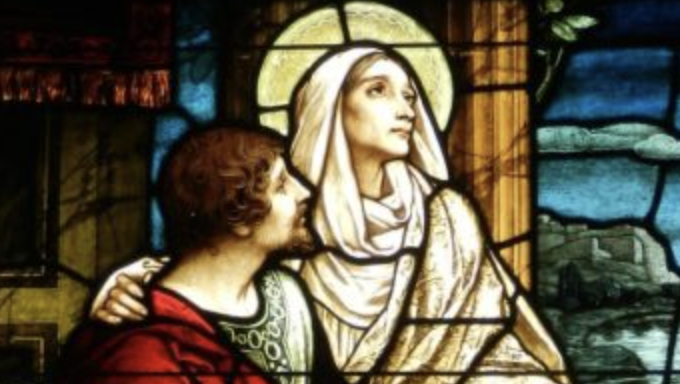
Next Thursday, 27 August, is the feast of St Monica (322-387) – and the following day, Friday, 28 August, the feast of St Augustine (354-430), one of Monica’s three children. They both lived most of their lives in North Africa, then part of the Roman Empire. This was following the Constantine’s Edict of Milan (313), ending the era of persecution, and making Christianity legal.
St Augustine
St Augustine is a towering figure in Christianity, both as regards Catholics and Protestants. He was a priest, a religious, a bishop, in what is now modern-day Algeria, before the barbarian invasions – and a prolific writer, still read today, a theologian, the greatest of the western Fathers of the Church. Augustine’s three most accessible books are The Confessions, The City of God, and On Christian Doctrine. They are included amongst Mortimer Adler’s Great Books, significant not only for Christians, but timeless literature of our civilization.
The Confessions
The Confessions is the world’s first autobiography – but in contrast to the modern style, it is not about “how I got it right”, “how smart I am”, “what blockheads, what low life are my enemies”. The Confessions, cast in the form of a prayer, is self-criticism, not only of Augustine, but of the family, and of the society in which he grew up. I suppose Augustine is best known for the sexual licence of his youth, and his repentance – “Give me chastity but not just yet!” – but a careful reading of TheConfessions discloses a far more subtle self-criticism directed to the youthful Augustine’s narcissism, his self-absorption, his pride.
Augustine’s subtlety is exemplified by the following passage commenting on his father Patricius’ ambitions for him:
No one had anything but praise for my father who, despite his slender resources, was ready to provide his son with all that was needed to enable him to travel so far for the purpose of study. Many of our townsmen, far richer than my father, went to no such trouble for their children’s sake.Yet this same father of mine took no trouble at all to see how I was growing in your sight or whether I was chaste or not. He cared only that I should have a fertile tongue, leaving my heart to bear none of your fruits, my God, though you are the only Master, true and good, of its husbandry.
Augustine’s writing about grace is of central importance-as is his just war theory.
St Monica
What we know of Monica comes from The Confessions, again a subtle portrait, based in part on what Monica must have confided to Augustine shortly before her death, in particular, her struggle against herself, and her prayers for her husband Patricius, and her children, especially Augustine.
Death
Again, the account of Monica’s death is forever memorable:
One day during her illness she lapsed into unconsciousness and for a short time was unaware of her surroundings.We all came running, but she quickly returned to her senses, and, gazing at me and my brother as we stood there, she asked in puzzlement:“Where was I?”
We were bewildered with grief, but she looked keenly at us and said:“You are to bury your mother here.”I was silent, holding back my tears, but my brother said something about his hope that she would not die far from home but in her own country, for that would be a happier way.On hearing this, she looked anxious and her eyes rebuked him for thinking so; then she turned her gaze from him to me and said:“What silly talk!”Shortly afterwards, addressing us both, she said:“Lay this body anywhere, and take no trouble over it. One thing only do I ask of you, that you remember me at the altar of the Lord, wherever you may be.”
Having made her meaning clear to us with such words, as she could muster, she fell silent, and the pain of the disease grew worse.
Monica and Augustine are saints who speak to us today, from whom we have much to learn.
Michael McAuley
